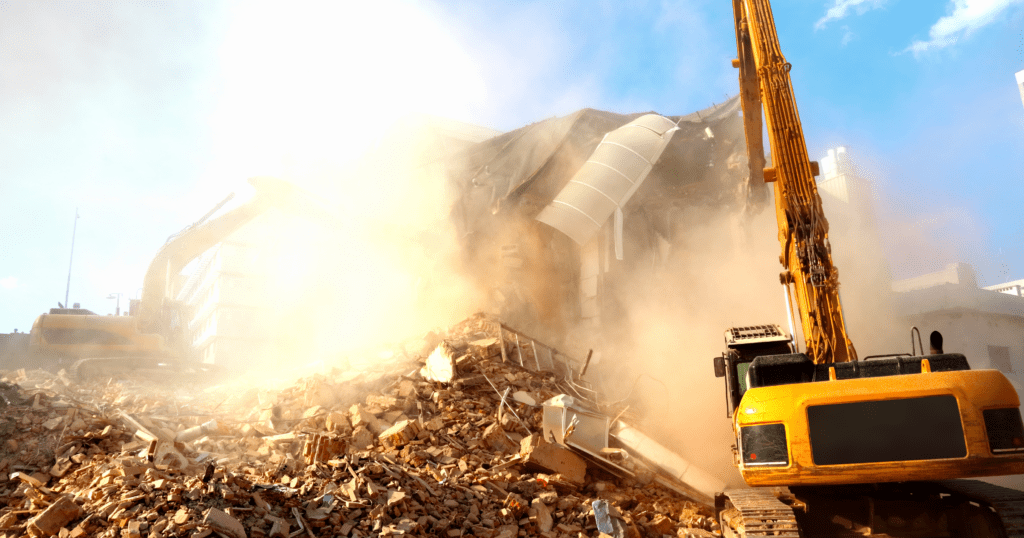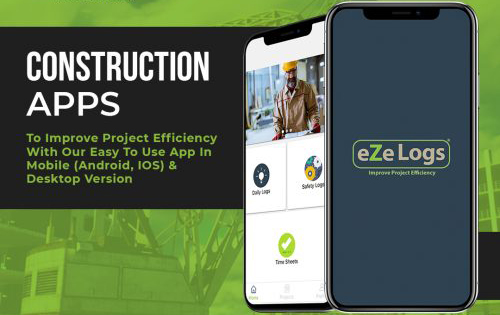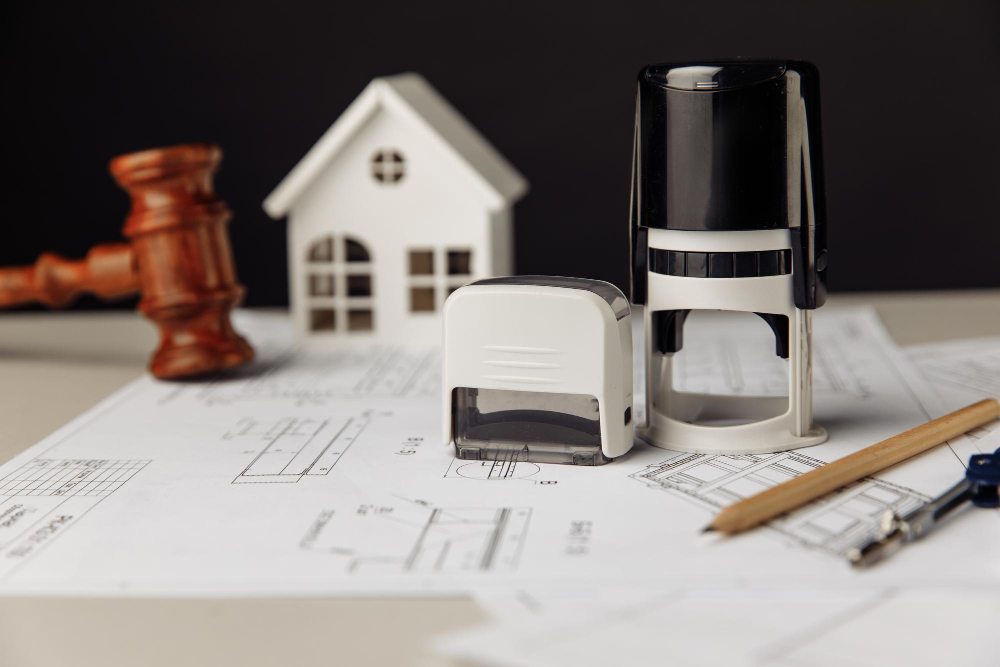Selecting the right demolition contractor is crucial for ensuring that your demolition project proceeds smoothly and safely. Here’s a comprehensive guide to help you make an informed decision.

Understanding Demolition Services
Demolition involves more than just tearing down structures. It includes various types of services and considerations.
Types of Demolition
- Structural Demolition
- Complete teardown of structures like buildings or bridges.
- Selective Demolition
- Removal of specific parts of a structure while preserving others.
- Interior Demolition
- Focuses on dismantling interior components such as partitions and fixtures.
Project Scope
Clearly define the scope of your demolition project. This includes understanding the type of demolition needed, project size, and any specific requirements or restrictions.
Also Read: Why General Contractors Need Liability Insurance
Key Factors to Consider When Hiring a Demolition Contractor
Experience and Expertise
Evaluating a contractor’s experience and expertise is essential for a successful project.
Industry Experience
Look for contractors with extensive experience in demolition, particularly in handling projects similar to yours. Experienced contractors are adept at managing complex tasks and unforeseen challenges.
Specialized Expertise
Depending on your project’s needs, you may require a contractor with specialized skills, such as dealing with hazardous materials or executing precise demolitions.
Licensing and Certification
Ensure that the contractor holds the appropriate licenses and certifications required by local and state regulations.
Licensing
Verify that the contractor is licensed to perform demolition work in your area. A valid license indicates compliance with regulatory standards.
Certification
Check for certifications related to safety, hazardous materials handling, and environmental regulations, reflecting the contractor’s commitment to industry best practices.
Safety Measures
Safety is a top priority in demolition projects due to inherent risks.
Safety Plan
Ensure the contractor has a comprehensive safety plan, including procedures for handling hazardous materials and site hazards.
Insurance
Verify that the contractor has adequate insurance coverage, including liability insurance and workers’ compensation, to protect against accidents and damages.
Reputation and References
A contractor’s reputation and past performance are important indicators of reliability.
Reviews and Ratings
Look for reviews and ratings from previous clients. Positive feedback can indicate a contractor’s reliability and quality of work.
References
Request and follow up on references from past clients to gain insight into the contractor’s performance and professionalism.
Project Management and Communication
Effective project management and communication are crucial for a successful demolition project.
Project Management Skills
Assess the contractor’s ability to manage the project efficiently, including scheduling, coordination, and problem-solving.
Communication
Ensure the contractor communicates clearly and regularly to address concerns, provide updates, and facilitate smooth project execution.
Cost and Budget
Understanding the financial aspects of hiring a demolition contractor is key to managing your budget.
Cost Estimates
Obtain detailed cost estimates from multiple contractors. Compare estimates to ensure they cover all project aspects, including labor, equipment, permits, and disposal.
Budget Adherence
Choose a contractor who offers transparent pricing and is committed to staying within your budget. Discuss potential cost overruns and how they will be managed.
Environmental Considerations
Demolition projects often have environmental impacts that need to be managed responsibly.
Waste Disposal
Verify how the contractor handles waste disposal and recycling. A responsible contractor will have procedures for environmentally friendly disposal of materials.
Hazardous Materials
Ensure the contractor is equipped to handle hazardous materials, such as asbestos or lead, in compliance with environmental regulations.
Legal and Regulatory Compliance
Compliance with legal and regulatory requirements is essential to avoid legal issues and ensure project smoothness.
Permits and Regulations
Confirm that the contractor can obtain the necessary permits and approvals for your project and is knowledgeable about local regulations.
Legal Issues
Be aware of potential legal issues related to the project, such as property ownership disputes or zoning regulations. A reputable contractor will assist in navigating these issues.
Choosing the right demolition contractor involves careful consideration of various factors, including experience, licensing, safety measures, and cost. By evaluating these aspects thoroughly, you can ensure that your demolition project is completed efficiently and safely.
Also Read: The Exciting Role of Demolition Contractors in Sustainable Construction Practices in 2023


